|
|
|
|
|
|
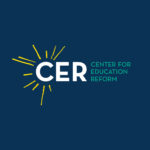
THEY SAY SHOWING UP IS HALF THE BATTLE. Research suggests that finishing high school is key to future success. But we’re still not ready to cheer the notion that rising high school graduation rates are an indication of great progress in education because other data – about what kids actually know and can do at each level – is still sorely lacking. Graduation rates are relatively subjective. We’re glad things are looking better, but whether and where that is actually resulting in better educated students is debatable.
DON’T BELIEVE EVERYTHING YOU READ IN THE NEWSPAPERS. In case you missed it – and, given the timing of its release, it seems to have been designed so that you would – the AP filed a story over this past weekend concluding, based on an “analysis” of data, that charter schools are racially isolated. We put quotes around analysis because aside from the story being outrageously inaccurate, it’s also lacking in data integrity, reflects no understanding of variations in charter laws or of local context, and is otherwise wholly lacking in any kind of critical thinking. It’s a stunningly irresponsible piece of journalism that took extremely complex data and tried to simplify a picture of more than 7,000 schools in thousands of communities in 43 states whose laws are as different as snowflakes in where and how they permit charter schools. It’s shocking, especially when more than 50 percent of students in traditional public schools lack proficiency and charter schools are providing children of greatest need with the only choices they’ve ever had. Hence, the well-deserved and welcome firestorm of criticism the story has generated.
AND… Before you shrug off the AP story as simply bad reporting, or a hatchet job on charter schools (both of which happen to be true) remember that this is the type of information that worms its way into the public record and eventually becomes “fact” in the ongoing discussion/debate/argument over charters and other opportunities and options for learning. The story has already been dissected to apply its “findings” to Ohio and Michigan charters and is likely to keep popping up, a la whack-a-mole, for months (and possibly years to come). So this is probably not the last time you’ll hear from us on the subject.
THE 411 ON 529. With the new 529 rules contained in the Senate Tax Reform bill having weathered the gauntlet of review and revision that is the legislative process, it’s now on to committee for the reconciliation process (which is often more like an ugly divorce trial than an effort to reach a harmonious middle ground…but we always hope for the best). The good news is, the revisions have gotten this far and, when all is said and done, will probably survive in some form or fashion in the final bill. The bad news is…well, this is a rare instance where, at the moment we have no bad news to report. The revisions are not the end-all-and-be-all – there are still ideas afoot for expanding opportunities though the tax code, and those remain on a list of action items for 2018 – but as we look to the close of 2017, we can at least say, “so far, so good.” (If you can look past the spin and editorial comment, this isn’t a bad WaPo piece on the ed-related items in the Senate tax bill.)
THINK GLOBALLY, ACT LOCALLY. While at its heart, education reform will always be a grassroots movement, embracing innovation and harnessing technology as means for improving education opportunities and options has become a worldwide undertaking. Hence last week’s Global Education Summit held in Beijing. With the theme of “Global Technology Advancing Education,” the meeting brought together more than 300 education and technology leaders to discuss issues related to connecting China’s education to the world and bridging the education of today to that of tomorrow. A Who’s Who of the education and tech world were in attendance – including CER Board Members Michael Moe and Chris Whittle – as well as former President Barack Obama. It was an exciting event that spoke to the reality of today’s challenges and of the need to accelerate the pace of change here in the U.S.
AND SINCE WE’RE SCALING SUMMITS: The 10th Annual ExcelinEd National Summit on Education Reform was held last week in good old Nashville, Tennessee, USA. While our good friend and long-time ally in education reform, Gov. Jeb Bush, attracted most of the headlines – along with EdSec Betsy DeVos (who, frankly, did a great job sticking to her guns as an advocate of substantive reform) – the meeting featured 13 in-depth strategy sessions designed to engage, educate and inspire attendees to do big things to help students in their states. If you didn’t make it this year, plan to attend next year. It’s a valuable experience for individuals and for maintaining momentum in the movement.
BETTER SERVING THOSE WHO SERVE. America’s 1.3 million service men and women are parents to some 750,000 school-aged children who share the unique burdens of military service: education mobility – bouncing from school to school; attending schools on military bases – most of which are stuck in decades-old pedagogy and lack the personalization and sophistication in educational practice that kids in military families need; and attending traditional public schools that are unequipped to meet their unique needs. These kids deserve better and every service parent should be able to choose any school that will best serve their child’s needs, whether it’s a local public school that’s outside of their zone, a private school or a charter school. In other words, “Our military kids need an education system as flexible as they are.” Read about it here.
PAPER TIGERS. If you follow New Jersey politics you know that the New Jersey Education Association was hopping mad at state Senate President Steve Sweeney saying he broke a promise to lobby for a ballot question that would guarantee teachers’ pensions be funded by the state. So, to get even, for last week’s election the NJEA threw its support to Sweeney’s opponent in the 3rd District race, and poured $4.5 MILLION into a campaign to defeat the incumbent. The only problem for the NJEA is, Sweeney won anyway leaving the union described as “out of touch,” “politically damaged” and its campaign called “a fool’s errand.” It’s another example of “How Teachers’ Unions Became the Paper Tigers of Education Reform.”
OPPORTUNITY KNOCKS. As Puerto Rico continues to struggle to recover from the devastation wrought by Hurricane Maria, rays of sunlight are emerging that could put the island’s education system on a new footing. As The Interceptreports, PR’s Ed Sec, Julia Keleher, is pushing hard to use the recovery as a vehicle for achieving substantive change. Citing New Orleans’ recovery from Katrina as a “point of reference” she called on Puerto Ricans to see their plight as a “real opportunity to press the reset button…and to create new, better schools.” Her biggest worry, she says, is not capitalizing “on this learning opportunity, this transformational opportunity for us to start to think fundamentally differently about what it is to be in school, and how one goes about getting an education.” You have to admire her goals and enthusiasm, and charter operators and virtual education providers across the country should be thinking about how they can get involved in Puerto Rico’s post-Maria landscape.
JOBS AND TAXES. With all the Sturm und Drang over the proposed tax overhaul an important point has been lost: that, as part of tax reform, there is an urgent need to ensure the preparation of current and future workers for the changing needs of the economy. Job creation and job preparation must go hand in hand. Expanding 529 accounts is the only education item in the current package, but the ability to set aside dollars under a 529 plan simply is not a reality for most Americans. A much better approach: the proposed Education, Workforce and Apprenticeship Tax Credit Act which would encourage charitable donations to nonprofit organizations for community-based apprenticeship initiatives, career and technical education, workforce development, and educational preparedness. Read more here.
Last Thursday, CER celebrated its 24th year of fighting for kids and families with a reception at our Washington office and a roundtable discussion of the past, present and future of education. The evening featured an all-star cast of some of the most notable edreform voices in the nation:
John Engler, the Chairman of the National Assessment Governing Board and the former Governor of Michigan
Kevin Chavous, an author, attorney and national edreform leader
Donald Hense, the founder and chair of Friendship Public Charter Schools
Michael Moe, the founder of GSV and GSV Asset Management
Chris Whittle, the founder and CEO of Whittle Studios
Jeanne Allen, the founder and CEO of CER
Each of these panelists offered insights, opinions, and perspectives on the state of education in America. We’re including a few excerpts below. If you want more, check out the full video on Facebook.

Jeanne Allen: Leadership Means Doing More Than Preaching to the Choir
We start with a national conversation about leadership — how can we compel, join and engage people throughout the country? Not just politicians, not just people on one side of the political spectrum, but by really going to the ground where people live and breathe. We want to bring together those who don’t normally come together.

John Engler: Everyone Needs Their Own Individual Work Plan
40% of students don’t go to college. And of the 60% who do, half don’t graduate. That leaves 70% of Americans who need workforce skills. But to our detriment, we’ve deemphasized skills-based and technical training.
That needs to change. We have to create alternative paths to career training. Like IEPs for every student, we should have Individual Work Plans to help every person prepare for their future choices.

Michael Moe: Want to Participate in the Future? Become a Lifelong Learner
More and more people aren’t participating in the future because they don’t have the knowledge and education. Technology and automation are increasingly eating away at jobs. Human capability is on a linear growth curve, but technology is on an exponential curve. Soon, technology is going to replace the technologists.
In the new world, we have to become lifelong learners. Technology can democratize access to learning. Educational entrepreneurs create weapons of mass instruction. Knowledge will increasingly be the currency that allows you to participate in the future.

Donald Hense: Friendship Charter Schools Graduate 95% of Students
When we opened the first Friendship school, the high-school graduation rate in D.C. was about 50%. In the 20 years since, the total graduation rate here has become about 60%. What made the difference? Charter schools. The Friendship schools that I operate have a graduation rate of over 95%.

Chris Whittle: What Should a Modern School Look Like?
I attended my first reform conference in 1968, and when you look at where we’ve come over 49 years, you’d have to say, We can do a lot better.
We’ve advanced the ball, and there’s now a reform industry that future leaders can build on. But we need to consider what we’re achieving with students over their early 15 years — from pre-school though 12th grade — and contemplate what a new modern school should look like. Let’s make sure we have the basics — reading and math skills — which will get children off to a much better start than they get now.

Kevin Chavous: How Do You Get Students to Succeed?
Part of the challenge we have in building a learning culture is to make it relevant to every single American school-aged child, as opposed to trying to fit a circle in a square. This idea of motivating students and inspiring them — getting a student to believe in himself or herself — is still the essence of the teaching and learning experience that leads to better outcomes for kids.
When great principals are asked, “Why do your students succeed?” there’s a common answer: Because we inspire them to learn.
October 2017
Education, Workforce and Apprenticeship Tax Credit Act
As the President and the U.S. Congress focus on tax reforms to help stimulate private sector job creation, there is an urgent need to ensure the preparation of current and future workers for the changing demands of the U.S. economy.
Successful organizations pride themselves on having strong partnerships. At the Center for Education Reform, we are particularly proud of our relationship with The Walton-UNCF K-12 Education Fellowship Program – a leadership and talent development initiative aimed at building a robust pipeline of high-achieving African-Americans engaged in education reform in America.
The United Negro College Fund (UNFC) is the nation’s largest scholarship-granting organization for students of color, awarding $100 million to more than 10,000 students annually. In this collaboration The Walton Foundation, UNFC recruits juniors from historically black colleges and universities to participate in the program and serve eight-week- long paid internships with innovative partners in K-12 education located in the District of Columbia, New York, Boston, New Orleans, Atlanta, Indianapolis, Memphis, and Nashville.
CER founder Jeanne Allen first became aware of the program at a book-signing reception for education reform advocate Dr. Howard Fuller, when she asked UNCF’s Senior Director of Student Professional Programs Taliah Givens “Why don’t we have a fellow?” Following that encounter, Taliah worked quickly to put a fellow in place, and, since then, CER has hosted four UNCF fellows over the past three years.
The 2017 fellows, Najma Calhoun and Janeal Hightower Fordham, had the opportunity to deepen their exposure to education reform by working in a variety of functional capacities including policy research, media relations, and fundraising. Their capstone project included conducting research and writing interview summaries for an upcoming publication on charter school over-regulation. They also participated in our “Salute to Charters” event where they had the chance to engage with charter school leaders from around the country and meet Secretary of Education Betsy DeVos.
As the UNCF recruits candidates for its newest group of 34 juniors, CER looks forward to welcoming new fellows this summer. According to Director of Administration, Leonora Cravotta, “The UNCF fellows who joined us last summer were hard workers with strong writing and analytical skills and a desire to learn. They were great additions to our office and we’re very excited about hosting members of the 2018 class.”
For more information about hosting a UNCF fellow, please email [email protected] or visit https://www.uncf.org/walton.
A series of opinions by African-American leaders engaged in the battle for educational opportunity in their communities. Given the movement for systemic change and an end to racism once and for all we are resurfacing these voices who came together to stand up for equal access to opportunity to students of color. As we argue in this Special Newswire, education is a vehicle for change. It cannot solve all of society’s ills or get rid of inequity for good, but it’s a critical foundation.
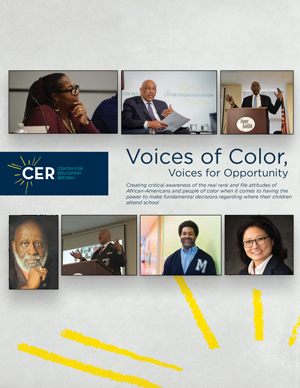
Creating critical awareness of the real rank and file attitudes of African-Americans and people of color when it comes to having the power to make fundamental decisions regarding where their children attend school
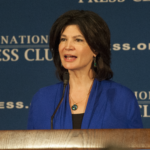
Tuesday, September 12, 2017 (Washington, D.C.) NEA President Lily Eskelsen Garcia was the featured speaker at the National Press Club last Friday, and served up a heaping portion of partisanship. The President, she said “creates fear in children, and that is unforgivable.” Then with a straight face, she added, “For me, this is not partisan. I’m from Utah.” Where, we might add, she ran for Congress as a Democrat.
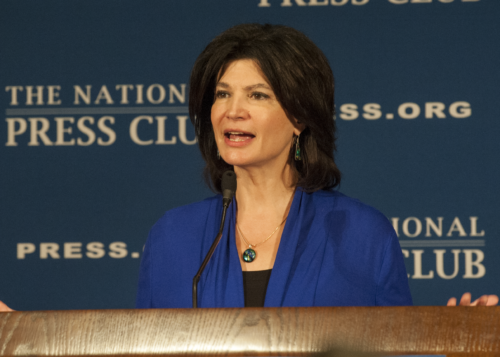
She hailed passage of ESSA in 2015 as “the last time Congress got together and did a good thing for kids.” She might have mentioned the bipartisan vote in the Illinois legislature this month, in which majorities of both parties voted to create a new tax credit program for school vouchers in that deep blue state, but the NEA and its affiliates fought fiercely against it, and that would not have fit their narrative.
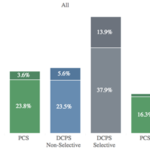
JUSTICE FOR ALL – A MESSAGE FROM CER’S DIRECTORS.
Since 1993, the Center for Education Reform (CER) has worked to advance a bold agenda to help our nation’s children achieve the education they deserve.
We fight hard and relentlessly for parent power because we know that education not only paves the way for everyone to participate in the future, but it’s a critical antidote to ignorance, to racism, to hatred. Education of the mind encompasses history, education of the soul encompasses the virtues of compassion and courage.
As tragic national and international events swirl around us, we believe the most important role CER can play is to address the shortcomings of education in this nation, for all learners, at all levels. There is inequity in our educational system, and no matter what solution you believe works best, it is the cause of many of our biggest challenges.
The entire education reform movement was born out of this knowledge – that education is the key to helping our young people achieve civilized, productive lives in which they can live peacefully and freely, pursuing their own ambitions, and that we must do whatever it takes, with urgency to get them the schools that will help them achieve exactly that.
As we watch our most precious resources go back to school, we recommit ourselves to excellence, equity and justice for all.
OF ANNUAL POLLS. OF ANNUAL POLLS. Lots of news about what Americans think. First, Education Next released is annual poll on education issues, which you can find here, and which we reflected on here: “The EdNext Poll: The Case for a Moral Imperative”
Then the Gallup Organization released another poll with many questions they’ve asked before on education (read our statement here). Among them was whether or not Americans are satisfied with the quality of education our students receive. A majority remain dissatisfied with education in general but not their own. They also believe private and charter schools work better for kids than public schools (though it would have helped to distinguish between charters and traditional public schools since charters are public… but we digress…). The poll is chock full of interesting tidbits but the bottom line is data is more important than opinion and the data still shows us lagging dramatically. More on that and polls, coming soon.
VERY COOL FOR SCHOOL. Friends of Choice in Urban Schools (FOCUS) has introduced an updated dashboard tool that includes 2017 results on the Partnership for Assessment of Readiness in College and Careers (PARCC) Assessment. The tool is not just a number-cruncher’s dream, it’s an incredibly useful resource for the non-data-philes among us since it allows one to filter results by sector, school, year, grade, and subgroup and actually understand the meaning behind the numbers.

DC SCHOOLS DO BETTER. Ten years after Michelle Rhee took DC by storm and united with civic and community leaders to add performance to the DC union contract, DC schools are showing progress on the same assessments. Much more needs to be done, of course, but giving credit where credit is due, the moral of the story so far is that systems can improve their lot for all kids if they challenge the status quo.
CER & RANDI IN THE NEWS – AGAIN. AFT’s Randi Weingarten just won’t give up. Rather than apologize for her racist rant at this summer’s AFT convention earlier this summer she continues to promote her alternative version of history. It is clear that she is making a calculated effort to twist the debate over educational opportunities in ways that are not only dishonest and distasteful, but destructive. When Weingarten first delivered her remarks in July, CER called her out, and called for her resignation. Last week we took her to task again in The Wall Street Journal, under the headline “Randi Weingarten’s Racial Demagoguery.”
This is the Primary Sidebar Widget Area. You can add content to this area by visiting your Widgets Panel and adding new widgets to this area.
Privacy Policy | © 2026: Center for Education Reform. All rights reserved.